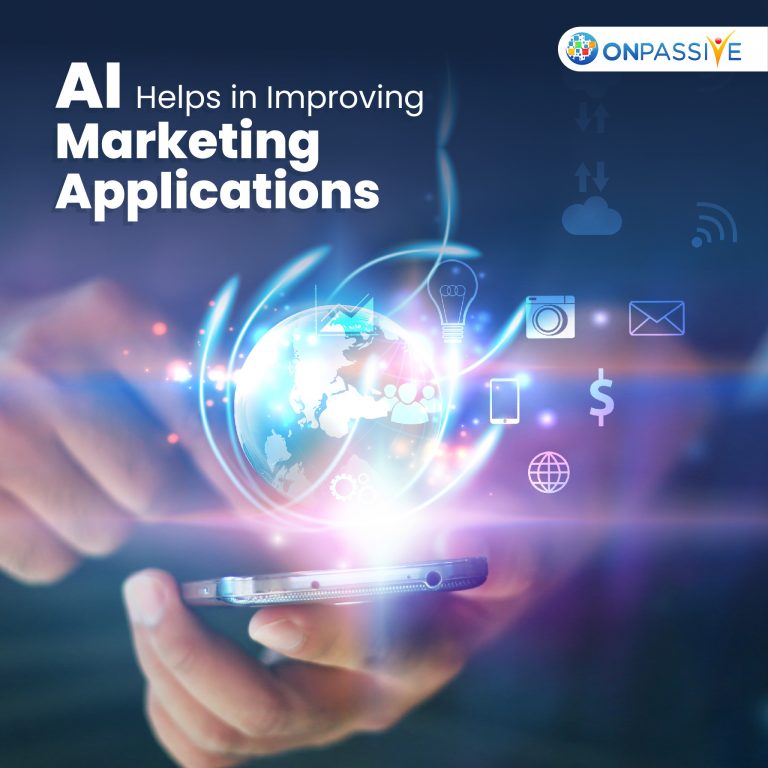
Due to its capacity to improve company processes, cut operation costs, and automate boring operations, artificial intelligence (AI) has been a key growth enabler for numerous industries. Cloud computing, big data, and the internet of things (IoT) may enable further market expansion in the AI sector, which business estimates will be valued at $190.61 billion by 2025.
As AI grows and expands its reach, we predict that the marketing, security, health care, and automotive industries will be the top four end-user industries to have the biggest digital transformation over the next five years.
Artificial Intelligence In Marketing
Today, AI is being used to improve important marketing applications, including copywriting, dynamic pricing, virtual assistants, and customer behaviour prediction. It allows marketers to spot programmatic trends and opportunities as they emerge, allowing them to focus on developing deeper client relationships through personalized online content and product recommendations, as well as other targeted advertising strategies.
Over the next five years, marketers will continue to embrace AI technology to conduct more successful campaigns to stay competitive. Marketers will be able to generate even more customized and appealing content in response to growing customer demand as a result of this.
Marketers will also likely focus on releasing the power of data, which will aid them in making real-time decisions, analyzing target customers, and designing ad campaigns. According to reports, eCommerce sales will continue to rise, and it is believed that the eCommerce industry will continue to draw customers in the future years, resulting in a desire for AI-assisted experiences.
If you are looking for an email marketing tool, O-Post by ONPASSIVE is an ideal tool. To know more about the tool, contact us.
Artificial Intelligence In Security
The world is getting increasingly unsafe and fragile as the average overall cost of a data breach continues to rise. IBM estimates that it cost $7.91 million in the United States in 2018. Businesses are turning to artificial intelligence to secure their most sensitive data.
Today, AI is assisting companies in powering a variety of applications. Due to the increased ease of attack, the growing number of mobile users and the ongoing use of cloud-based services will help the growth of the AI market for security. Organizations are required to use security solutions that use AI technology to detect network threats to protect data and enhance network security. Security analysts may use the same to continuously monitor, evaluate, and extract important security insights from data, allowing them to focus on minimizing cyber risks and assaults in their businesses.
As a result, AI presents a compelling potential for security solution providers to deliver next-generation AI-powered solutions to assist businesses in protecting the public and private infrastructure and defending themselves against ever-increasing cyberattacks. For example, many solution providers in the industry are actively striving to enhance their product portfolios by incorporating AI technology into their offers, and this trend will continue.
Artificial Intelligence In Healthcare
AI has improved a variety of healthcare applications. Consider the AI system that analyses patient data and risks, as well as a system that may aid in the detection of tumours via imaging. Intel, for example, is looking at AI applications for remote health monitoring in clinical trials via wearable devices.
In mental health therapies, a few newer AI applications in health care may be seen: One research published in Nature looked at new AI capabilities that might reliably diagnose schizophrenia, and Google and Johnson & Johnson allegedly teamed together in 2015 to develop artificial intelligence-powered surgical robots. This trend toward improved health care services is certainly being driven by the growing need to decrease rising costs, as well as the growing number of cross-industry alliances I’ve seen. Healthcare companies may continue to use AI to enhance patient outcomes during the next five years.
● Artificial Intelligence In Automotive
The use of artificial intelligence in the automobile sector has grown in recent years. We’ve seen the industry incorporate disruptive technology into a variety of products, including voice recognition systems, gesture recognition systems, Volkswagen’s intelligent copilot system, and in-car assistants, as well as newly announced plans for gesture recognition systems. This is a developing industry where AI technology may be used in many forthcoming premium models by inventive firms. AI, in my opinion, will be a critical component in future self-driving automobiles.
Conclusion
The rising need across sectors for improved user experience, convenience, and safety features offers an opportunity for OEMs to build new and creative artificial intelligence systems that might help attract customers. In the next five years, AI-based technologies in the automotive sector will become a critical component in cars.
In the automobile industry, AI provides significant prospects. Market solution providers can collaborate with a variety of automotive designers and suppliers to create intelligent solutions that are largely focused on improving road safety and vehicle security.


